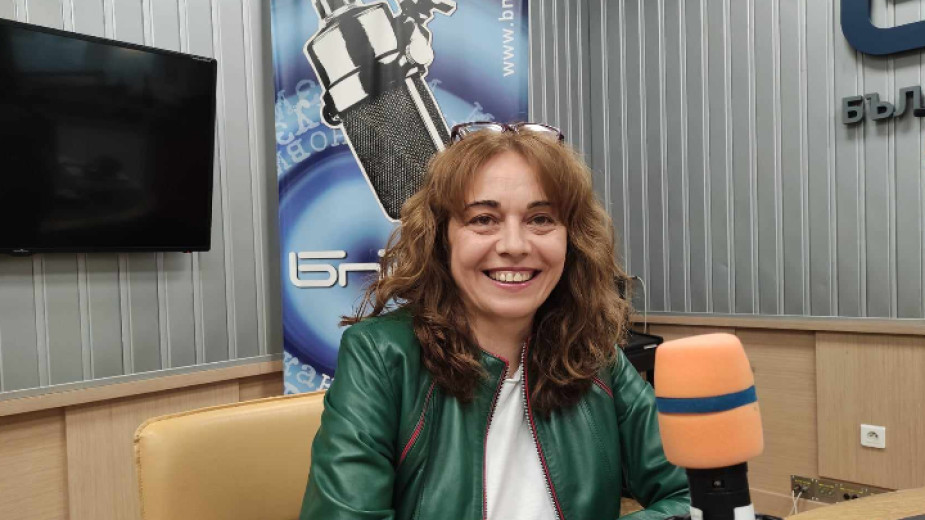According to a 2023 National Statistical Institute study, more than 88% percent of households in Bulgaria have access to the Internet. Most users are online every day, and more than 95% are active on social networks. The share of people who read the news, newspapers and magazines online, and the comment sections, remains high. As to young people and teenagers, their channels of communication are mostly TikTok, Instagram and YouTube, followed by podcasts, with news websites trailing last. Traditional media outlets like television and radio are not even mentioned by young people, the Association of European Journalists in Bulgaria has ascertained during initiatives they have organized with the participation of school and university students.
“In practical terms, when the media were digitalized, they lost the young audience, who come in contact with news of sorts if the item happens to be popular on the social networks they are using. This means that if we (journalists) continue to ignore this phenomenon, everybody is going to transition to social media. And what is the thing that important to us if we want to create a future audience?” asks journalist Evelina Andreeva. To find the answer to this question, she conducted a survey among 20-30 year-olds, and summarized the results in her book: Media man: From the analogue world to the digital universe.
As it turns out, what is most annoying to young people in traditional journalism is manipulation, followed by – information about diseases and problems, and thirdly – the abundance of politics.
“This generation Z (born in the first decade of the 21st century – editorial note) wants optimism, courage and light on their way, and if they don’t find it – they run away. That is the big problem, the reason why young people go to the social networks. They do not believe the media, and to a certain extent they have their reasons. They don’t believe politicians either. Generation Z does not want to grow up, they want to live in their own bubble, and there to achieve success. And the earlier they achieve this success, the better for them. They want to hear the stories of people who are successful, but not at age 59, they want this to have happened at 20 and at 30. And they believe the most important things that affect them are connected with their career, with human relationships. Third comes love, because a person can live without love, though you can’t live with love but without a career, without professional development, without financial security.”
Evelina Andreeva says further that young Bulgarians steer clear of politics. At the same time, they are interested in the position of the journalist – “they expect journalists to express their personal opinion, something that is absolutely forbidden at news agencies where what matters most are the facts.”
Being a media person with many years of experience at the Bulgarian news agency BTA, Evelina Andreeva expects more attention to be given to the source of the information, and opinion leaders among the young. She believes it won’t be long before the media in Bulgaria lose their audience altogether. “And the other thing that seems really important to me,” she says, “is that the news for young people should be done by young people.”
“The survey I did last year showed that 62% of young people do not understand the news. That, on the one hand, is connected with the functional literacy, something that is measured by the PISA study. On the other hand, their attention span is no more than 6-7 seconds. Once they hear the preview and the title, they lose interest and stop listening. And from there they lose the connection with what the media is trying to comment, or to report. It is interesting to note who they cite as a mentor they would like to hear an explanation and clarification of the news from. First – a parent, a friend, then come the influencers, podcasters and YouTubers. But not the public opinion leaders we know from the end of last century, and they are the people who appear on television and radio.”
The book which analyses the media behaviour of young Bulgarians is by Evelina Andreeva herself, though the last paragraph is by AI – the aim being to leave the issue open-ended. “Bulgaria is evolving, media-wise, at a pace a bit slower than the world. That is why if we take more interest in what the world has done in the media domain, we could make use of the good things and avoid the mistakes,” Evelina Andreeva says.
Interview by Silvia Velikova, Horizont channel, BNR
Compiled by Gergana Mancheva
Translated and posted by Milena Daynova
Photos: Pixelshot, Pixabay, Tanya Milusheva
October 17, 2025 will go down in history as the date on which the Minister of Culture of Hungary presented the document with which the Tradition of Bulgarian Gardening in Hungary officially entered the UNESCO National Register of..
The center of Bulgaria's town of Asenovgrad is today turning into a colorful scene of flavors, aromas and traditions, in which the spirit of the Red Wall Biosphere Park comes to life , reports BNR's Radio Plovdiv. At the “Festival of Crafts and..
"Folklore is a need for humans and this need will not disappear just like that, " says Assoc. Prof. Dr. Natalia Rashkova - ethnologist and folklorist, university lecturer and researcher with a strong contribution to the study of..
"We cannot escape from modern technologies, but we must think about how we can use artificial intelligence to improve the quality of..
Over 80% of Bulgarians are expected to start using artificial intelligence in the next three years , across all age groups. Today, it is almost..
Serbians around the world mark one year after Novi Sad tragedy On November 1, Serbians abroad will join the call of..

+359 2 9336 661
